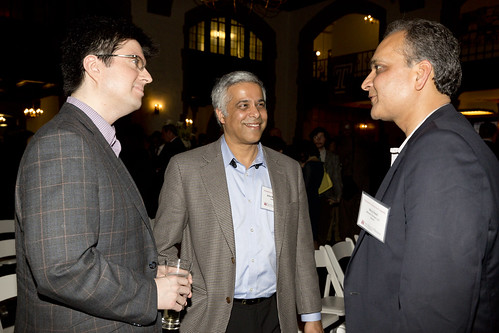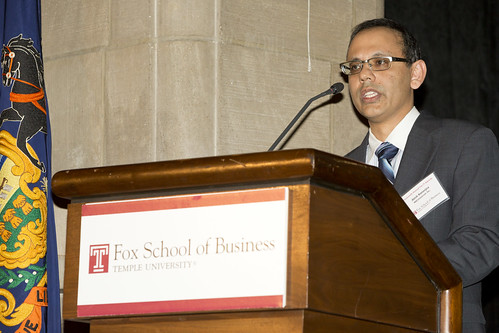Management Information Systems (MIS) majors at Temple University’s Fox School of Business now have four more opportunities to receive tuition scholarships thanks to donations from some of the world’s largest companies.
Merck, Lockheed Martin, Campbell Soup Co. and Walmart – all members of the Fox School’s Institute for Business and Information Technology (IBIT) – have each donated an annual $5,000 scholarship to be awarded to new and continuing high-performing MIS majors who demonstrate exceptional potential.
A call for applications, including letters of recommendation, will be made in late February or early March 2014. Recipients will be selected by the Institute for Business and Information Technology and MIS Department and recognized by school and corporate leaders at the annual IT Awards Reception in mid-April.
These companies recognize the caliber of our program and its students and recognize them for their dedication and achievement. We thank our partners for their continued collaboration and generosity in supporting our students.
Laurel Miller, Director
IBIT, a membership-driven organization that is closely tied to industry, provides cutting-edge knowledge and valuable connections to sustain excellence in information technology. IBIT integrates industry perspectives with academic research expertise to create forums for generating and exchanging best practices.
IBIT is affiliated with the Fox School’s Department of Management Information Systems – recently ranked No. 14 in the nation by U.S. News and World Report – and draws from participating MIS faculty and students as well as the expertise of the entire Fox and Temple University community.
We are pleased to be working with Temple and look forward to engaging with the next-generation workforce. Technology will continue to help revolutionize the rapidly changing business landscape, so it’s more important than ever to encourage high-performing students to pursue careers in IT.
Joseph Spagnoletti, Chief Information Officer, Campbell Soup Co.






















 The Institute for Business and Information Technology (IBIT) is pleased to announce the release of The IBIT Report –
The Institute for Business and Information Technology (IBIT) is pleased to announce the release of The IBIT Report – 

